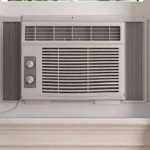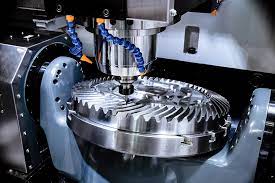Cannabis for medical purposes has been debated for decades. But, it has only recently begun to be seen as a serious contender in the treatment of a wide range of illnesses. However, many people who may benefit from medicinal cannabis therapy find it difficult to get their hands on it. Here’s where a Medical Marijuana Card (sometimes known as an MMJ Card) comes in handy.
Several US states require a medical marijuana identification card (MMJ Card) before a patient may legally purchase medicinal marijuana.
Medicinal Marijuana’s Advantages
The term “medical cannabis,” often known as “medical marijuana,” refers to the practice of using components of the cannabis plant to alleviate symptoms associated with various illnesses. Many cannabinoids in cannabis, such as THC and CBD, are used for medical purposes.
Many have used medical cannabis to treat a wide range of medical issues. These issues include chronic pain, nausea and vomiting, anxiety, depression, seizures, and muscular spasms. Symptoms brought on by conditions including cancer, HIV/AIDS, and multiple sclerosis may also be treated with medical cannabis.
- The use of medicinal cannabis has helped a lot of people who have chronic pain. Further, cannabidiol (THC), the psychoactive component of cannabis, can alleviate pain and inflammation.
- Those with Crohn’s disease or ulcerative colitis, for example, or those undergoing chemotherapy may benefit greatly from cannabis treatment as it alleviates nausea and vomiting.
- Lastly, medicinal cannabis may have anti-anxiety and antidepressant properties, making it a possible alternative to standard psychiatric medicines.
- Moreover, CBD, a non-psychoactive component of cannabis, can significantly lessen seizures in people with epilepsy.
Accessing Medical Cannabis
The law implies that those who need medicinal cannabis should have a valid MMJ Card. The procedure of acquiring an MMJ Card varies depending on the state but often entails the following steps:
- Patients must have a qualifying medical condition. These conditions include cancer, HIV/AIDS, chronic pain, or PTSD, as established by their state’s medical cannabis program.
- Patients have to present medical documents to verify the existence of a qualifying medical condition.
- Patients must acquire a referral from a registered physician stating that medicinal cannabis would be an acceptable therapy for their ailment.
- To apply for a medical marijuana card online, a patient must provide personal information and details on their qualifying medical condition.
- Patients must pay a charge to get their medical marijuana card.
- When a patient applies for and receives a medical marijuana identification card (MMIA Card), they can legally buy and consume cannabis for therapeutic purposes.
We recommend contacting your state’s medicinal cannabis program for information on their criteria and fees for acquiring an MMJ card.
Cannabis for Medical Purposes vs. Recreational Use
Getting an MMJ card to use cannabis for medicinal purposes is different from getting a card to use cannabis for recreational purposes. Although both contain cannabis, they have different ramifications in terms of the law and daily life.
Recreational marijuana use is illegal across the country. Yet, medicinal marijuana use with a valid MMJ card is legal in several states. This implies that people who have an MMJ card may use cannabis for medicinal purposes without fear of repercussions from the law. Moreover, they can purchase cannabis from authorized shops.
Using medicinal cannabis with an MMJ card often entails working with a registered physician. Further, you should follow dosage instructions and administration standards. However, recreational cannabis usage is frequently uncontrolled and may include self-medication with unknown quantities and strains.
Additionally, the cost of medicinal cannabis with an MMJ card is generally cheaper than recreational cannabis. Medical cannabis comes with low taxes or no taxes at all. In certain states, patients can cultivate their own cannabis, thereby further reducing their expenses.
Legal protection, access to high-quality, controlled cannabis products, and possible cost savings are some of the benefits that patients with an MMJ card enjoy. On the other hand, recreational cannabis usage is easier to obtain and less regulated in certain jurisdictions.
Advantages of an MMJ Card
Using medical cannabis with an MMJ card affords patients legal protection. It also offers access to regulated and high-quality goods and the possibility of financial savings.
The use of medical cannabis with an MMJ Card is lawful in many jurisdictions. It may offer patients safe and effective treatment alternatives. Although the two forms of cannabis usage are distinct, it is crucial to note that both have different legalities depending on the state you are in.
Conclusion
The MMJ Card is a fundamental component of obtaining medicinal cannabis. Getting an MMJ Card entails a procedure of qualifying, medical documents, a doctor’s recommendation, application, and payment, and the particular criteria and prices vary by state.
Contact your doctor if you’re thinking about getting a medical marijuana card in your state. As such, you may legally use cannabis to treat a legitimate medical condition. The MMJ Card in the hands of an informed and well-guided patient, may unlock the therapeutic potential of cannabis.








